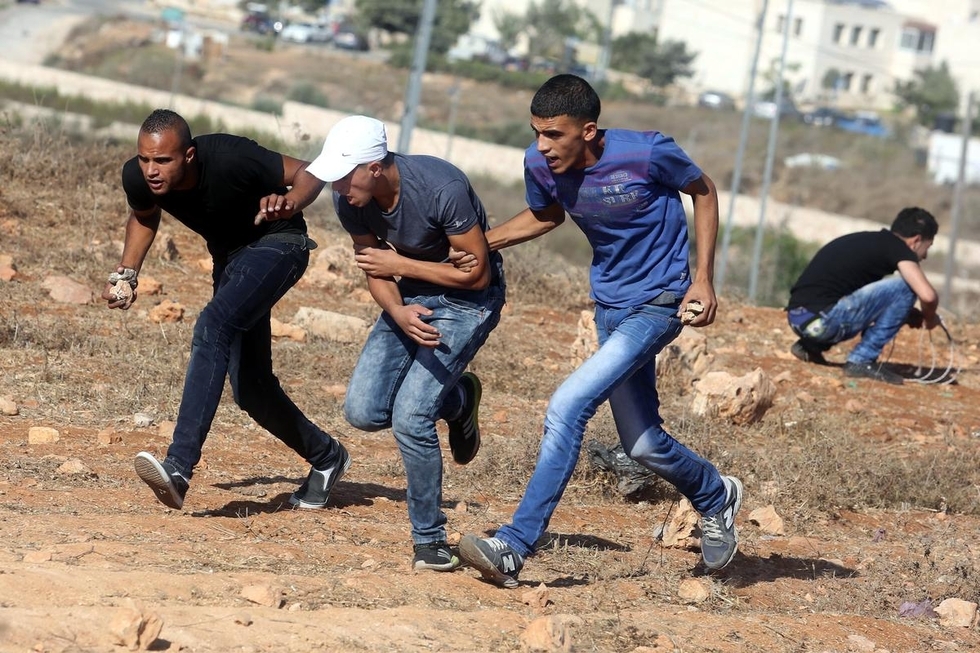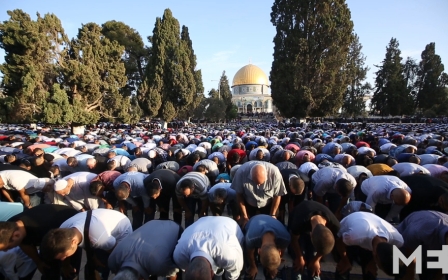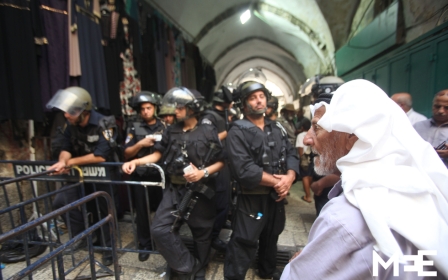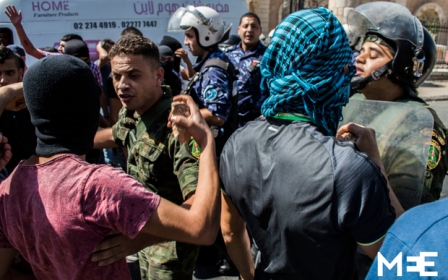Sporadic clashes hit Jerusalem, West Bank

Sporadic clashes between Israeli security forces and Palestinians hit Jerusalem's Old City and a checkpoint outside Ramallah on Tuesday, with tensions heightened as Palestinians were reportedly denied access to al-Aqsa Mosque for the third consecutive day.
The incidents followed fresh clashes on Monday at the mosque compound in Jerusalem, where security forces fired stun grenades and tear gas and Palestinians threw stones and petrol bombs while barricading themselves inside the shrine.
Tuesday's disturbances in Jerusalem occurred on the margins of the compound, with an increase in the number of Jewish visitors expected as a result of the eight-day Sukkot holiday that began on Sunday night.
Al-Aqsa Mosque compound director Sheikh Omar al-Kiswani told Ma'an News Agency that 140 Jews had entered the complex on Tuesday while he said all Palestinians under the age of 50 were denied entry.
Just ahead of leaving Israel for the UN General Assembly meeting in New York, Israeli Prime Minister Benjamin Netanyahu told reporters on Tuesday that he plans in his UN speech to "stress that unfortunately, the Palestinians continue to spread blatant lies about our policy on Temple Mount and I will demand an end to this wild incitement".
Last week, Palestinian President Mahmoud Abbas - who has warned Israel that a third intifada is possible if Aqsa restrictions continue - said he planned to drop a bombshell during his UN speech.
Exactly what Abbas will focus on remains unclear with some speculating that he will call for the complete withdrawal from the Oslo Accords or the dissolution of the Palestinian Authority.
A Palestinian official told AFP that the leader will "tell everyone that the current situation is no longer tenable, that the Authority has authority in name only while Israel is destroying any idea of a two state solution".
Al-Aqsa is the third-holiest site in Islam. Known to Jews as the Temple Mount, it is the most sacred site in Judaism. It has been hit by repeated clashes in recent weeks after Israeli police raided the mosque, saying they had received warnings that youth inside were planning attacks on Jews visiting for Jewish New Year.
Palestinians, however, say the recent Israeli incursions on the mosque, where access has been regularly restricted to Muslims, are unprecedented and are part of an attempt to permanently block access to the holy site. Netanyahu has said repeatedly that he is committed to the status quo there.
The clashes outside Ramallah, in the occupied West Bank, saw dozens of youths throw stones at Israeli soldiers, who responded with water cannon and rubber bullets, an AFP journalist reported.
The violence occurred on the sidelines of a demonstration organised by Palestinian organisations, in part over the Israeli raids at the Al-Aqsa compound. Israeli authorities said the raids at the sensitive site were necessary to stop rioters from disrupting visits there.
Israeli police also said they had arrested 12 Palestinians overnight in annexed East Jerusalem, where the Al-Aqsa compound is located, including several in connection with the clashes at the site.
Israel seized East Jerusalem in the Six Day War of 1967 and later annexed it in a move never recognised by the international community.
New MEE newsletter: Jerusalem Dispatch
Sign up to get the latest insights and analysis on Israel-Palestine, alongside Turkey Unpacked and other MEE newsletters
Middle East Eye delivers independent and unrivalled coverage and analysis of the Middle East, North Africa and beyond. To learn more about republishing this content and the associated fees, please fill out this form. More about MEE can be found here.




